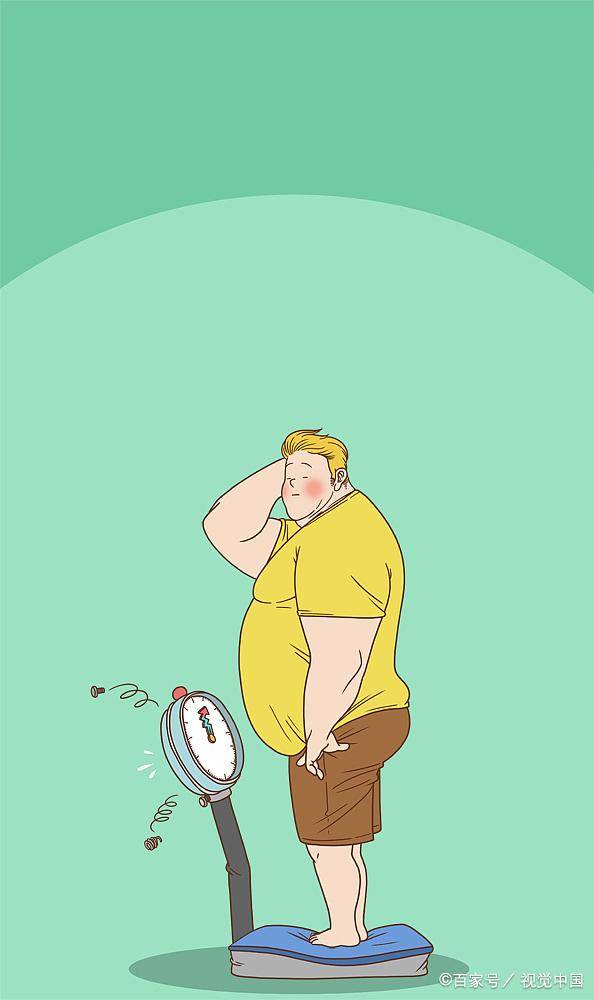“People in middle age really can’t help themselves, not only getting fat but also greasy!” Recently, 38-year-old Xiao Chen (pseudonym) is very distressed.
He is 1.75 meters tall, and his weight has increased from 60 kilograms at the time of graduation from college to 84 kilograms now, with a beer belly, double chin, and fatty liver following suit.
Despite trying various weight loss methods, every time he sheds a few pounds, he soon experiences a “rebound,” making weight loss the most troubling thing for him.
The reasons for middle-aged obesity are somewhat different from those of young people, often related to factors such as decreased metabolism, hormone level changes, increased social engagements, and reduced physical activity, thus requiring different approaches to weight loss.
A
The decrease in metabolism is one of the reasons for the difficulty in weight loss for middle-aged individuals.
Many people find that as they reach middle age, even if they eat the same amount as before, they tend to gain weight more easily.
As one ages, metabolism gradually decreases, especially for women approaching menopause, where estrogen levels drop, muscle mass decreases, leading to a further decline in basal metabolic rate.
Basal metabolic rate refers to the energy the body consumes at rest, accounting for about 60%-75% of the body’s daily energy expenditure.
A decrease in basal metabolic rate signifies that the body requires less energy to maintain physiological functions. If dietary intake remains the same, it can lead to excess calories and subsequently trigger obesity.
The body functions of middle-aged individuals also start to decline over time, such as joint wear, reduced muscle mass, affecting their physical activity and weight loss results.
B
High work pressure, frequent social engagements, and excessive intake of oily and high-calorie foods
Xiao Chen is a sales manager, usually busy with work and attending numerous social engagements.
He said: “Sometimes I have to accompany clients for dinner at night, which lasts for hours, and we often eat high-fat, high-calorie foods. By the time I return home, it’s already late, and I have no time or energy left for exercise.”
Due to reasons such as high work pressure and numerous social engagements, middle-aged individuals often find it challenging to adhere to healthy eating and exercise habits.
Moreover, the digestive system of middle-aged individuals has a higher absorption capacity for fats, making them prone to excessive calorie intake.
C
Insufficient physical activity, generally low physical activity among middle-aged individuals
In addition to dietary factors, the generally low physical activity among middle-aged individuals is also a significant reason for obesity.
Many middle-aged people find it difficult to find time for regular exercise due to their busy work schedules or household responsibilities.
A lack of physical activity not only leads to a decline in body functions but also slows down the body’s metabolic rate, making it easier to accumulate fat.
D
Scientific weight loss recommendations suggest starting with a health assessment at a hospital
To address the weight loss dilemma faced by middle-aged individuals, the following recommendations are provided:
1. First, undergo a comprehensive health assessment at a hospital to understand one’s physical condition and exclude potential disease factors.
2. Develop a reasonable dietary plan, control total calorie intake, increase consumption of vegetables, fruits, whole grains, and protein, and reduce intake of greasy and high-sugar foods.
3. Choose suitable exercise methods, such as walking, jogging, swimming, aerobic exercises, strength training, etc.
Engage in at least 150 minutes of moderate-intensity aerobic exercise per week or 75 minutes of high-intensity aerobic exercise.
4. Establish a regular lifestyle, ensure an adequate amount of sleep, and maintain a positive attitude.
Avoid staying up late, overworking, and experiencing significant emotional fluctuations.
5. If additional weight loss aids like medications or surgical interventions are needed, they should be carried out under medical supervision.
Avoid blind consumption of weight loss drugs or undergoing unregulated weight loss surgeries.


